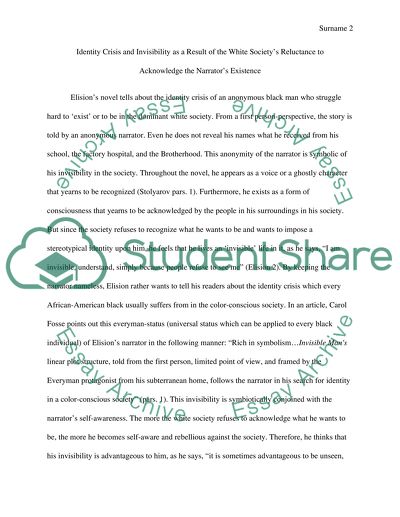Cite this document
(“Advantage of the Invisibility of Elisions Narrator in Invisible Man Book Report/Review”, n.d.)
Advantage of the Invisibility of Elisions Narrator in Invisible Man Book Report/Review. Retrieved from https://studentshare.org/literature/1623925-the-advantages-of-invisibility-in-invisible-man-by-ralph-ellison
Advantage of the Invisibility of Elisions Narrator in Invisible Man Book Report/Review. Retrieved from https://studentshare.org/literature/1623925-the-advantages-of-invisibility-in-invisible-man-by-ralph-ellison
(Advantage of the Invisibility of Elisions Narrator in Invisible Man Book Report/Review)
Advantage of the Invisibility of Elisions Narrator in Invisible Man Book Report/Review. https://studentshare.org/literature/1623925-the-advantages-of-invisibility-in-invisible-man-by-ralph-ellison.
Advantage of the Invisibility of Elisions Narrator in Invisible Man Book Report/Review. https://studentshare.org/literature/1623925-the-advantages-of-invisibility-in-invisible-man-by-ralph-ellison.
“Advantage of the Invisibility of Elisions Narrator in Invisible Man Book Report/Review”, n.d. https://studentshare.org/literature/1623925-the-advantages-of-invisibility-in-invisible-man-by-ralph-ellison.


